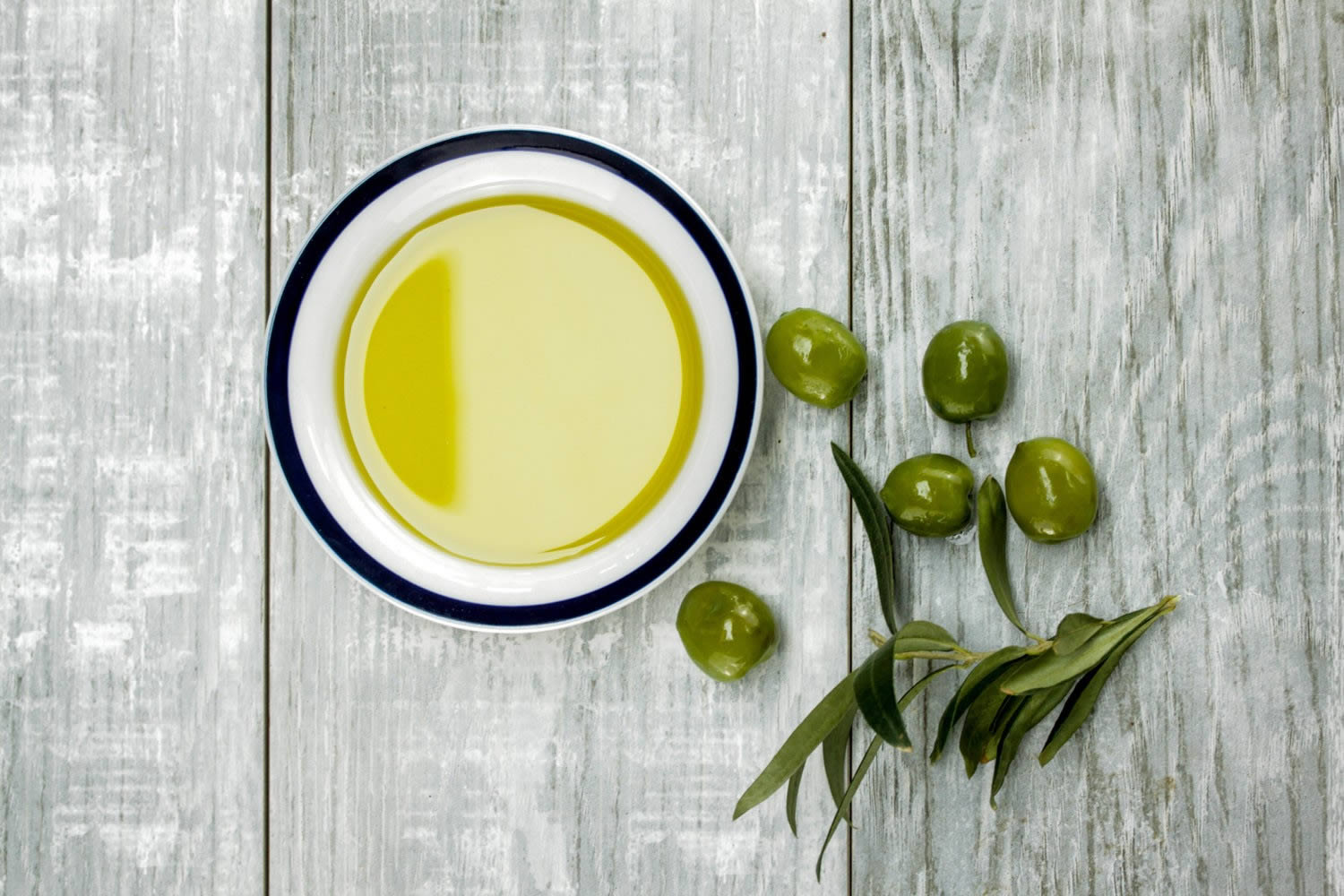Types of cooking oil
Cooking oil is a plant, animal, or synthetic fat used in frying, baking, and other types of cooking. It is also used in food preparation and flavoring not involving heat, such as salad dressings and bread dips, and in this sense might be more accurately termed edible oil.
Cooking oil is typically a liquid at room temperature, although some oils that contain saturated fat, such as coconut oil, palm oil, and palm kernel oil are solid.
There is a wide variety of cooking oils from plant sources such as olive oil, palm oil, soybean oil, canola oil (rapeseed oil), corn oil, peanut oil, and other vegetable oils, as well as animal-based oils like butter and lard.
Oil can be flavored with aromatic foodstuffs such as herbs, chilies or garlic.
Some types
1. COCONUT OIL
Coconut oil is a hot topic these days and for good reason. There are some pretty amazing benefits of coconut oil that come from using it on your skin, hair, and especially in your food! The fats that come from coconut oil convert more easily to energy than other fat, helping to boost metabolism, curbing appetite, and aiding weight loss.
2. EXTRA VIRGIN OLIVE OIL
This unrefined oil is a staple of the Mediterranean diet because it's the highest quality of olive oil, that portrays the true taste of olives. Unlike many other olive oils, this is untouched by chemicals or heat and contains more natural vitamins and minerals.
3. AVOCADO OIL
Avocado oil is the Matthew McConaughey of the oils, super versatile and, well, delicious. Unlike a lot of oils that are pressed from a seed, avocado oil is made of the same creamy goodness that makes guacamole. This heart-healthy oil has anti-inflammatory properties that help prevent arterial damage, heart disease, and blood pressure.
4. GHEE
Ghee is a form of clarified butter that has gained recognition more recently with diets cutting out dairy increasingly becoming popular. The milk protein has been removed from butter so people who are dairy-intolerant can (typically) consume it. It's a great source of fat-soluble vitamins with a more intense nutty flavor than butter. Since it is composed almost entirely of fat, ghee should still be used in moderation.
5. PUMPKIN SEED OIL
Pumpkin seed oil is a power-packed food rich in vitamin A, K, E, as well as both omega-3 and omega-6 fatty acids. It has a rich green color and nutty flavor that can make the perfect addition to a dish.
6. WALNUT OIL
Walnuts are chock-full of nutritional benefits. (Watch our video on the benefits of walnuts!) They're loaded with omega-3 fatty acids and hold a significant source of iron, zinc, calcium and magnesium. The flavor of this oil is rich and nutty. Diets rich in walnuts and walnut oil have been shown to help the body respond better to stress and keep diastolic blood pressure levels down.
7. GRAPESEED OIL
You may have seen grapeseed oil in hair and skin products, but its medicinal properties are just as useful in cooking. It has a simple, nonexistent taste that doesn't overpower other ingredients and is generally less expensive than EVOO. Make sure when buying grapeseed oil for culinary application that it's clearly labeled food grade. (You don't want to accidentally eat a hair mask full of chemicals!) This is a great source of essential fatty acids and vitamin C. But make sure to consume in moderation because it also contains a high amount of omega-6s that can increase inflammation and cause weight gain.
8. PEANUT OIL
Peanut oil has a bold nutty-sweet taste that is high in calories but low in saturated fats. It's made up of mostly monounsaturated fatty acid content that actually helps lower bad cholesterol and up the good cholesterol. Don't go too heavy on this stuff, though; it's high in omega-6's and can mess up the omega 3:6 ratio, causing health problems. Stick with the unrefined, cold-pressed versions as opposed to the commercial peanut oils you typically find in grocery stores and fast food joints that are refined, bleached and deodorized. The price might be higher, but your health with thank you later.
9. SESAME OIL
Sesame oil is loaded with antioxidants that slow down cell growth and replication. It's also known to lower blood pressure, blood sugar and improve skin. The taste of sesame oil is very distinct and will add a nutty flavor to any dish. It also provides 17 percent of the recommended daily value of vitamin K which provides bone support and prevents blood clotting.
10. HEMP SEED OIL
Also known as hemp oil, has properties that help reduce cholesterol, heal skin and control metabolism. You can find this oil in tons of natural body care products but it's also used in food. The flavor is subtle and adds a great element to many recipes.
11. FLAXSEED OIL
While the benefits of flaxseed are through the roof, the taste is not our favorite. But studies have shown that ingesting flaxseed oil daily has a positive effect on your digestive system and can be a natural way to treat constipation. It has also been linked to helping reduce high cholesterol and heart disease.
12. SUNFLOWER SEED OIL
Sunflower seed oil is charged with some pretty impressive health effects. It's shown to improve heart health, help fight cancer, lower bad cholesterol and boost energy.
13. CANOLA OIL
Canola has a near-even ratio of omega-6 to omega-3 fats. This dietary ratio has shown to help battle cancer, arthritis, and asthma. It's also gleaming with alpha-linolenic acid (ALA), an essential omega-3 fatty acid that may play a role in weight maintenance.
14. VEGETABLE OIL
You might see the word vegetable and automatically think it's good for you, but don't let the name fool you. Many brands of vegetable oils are highly processed and are simply refined extractions of various seeds. The questionable ingredients typically cause an imbalance in the recommended ratio between omega-3s and omega-6s that can lead to cancers and many other health related issues.
Some tips
Recycling
Main article: Vegetable oil recycling
Cooking oil can be recycled. It can be used as animal feed, directly as fuel, and to produce biodiesel, soap, and other industrial products.
In the recycling industry, used cooking oil recovered from restaurants and food-processing industries (typically from deep fryers or griddles) is called recycled vegetable oil (RVO), used vegetable oil (UVO), waste vegetable oil (WVO), or yellow grease.
Yellow grease is used to feed livestock, and to make soap, make-up, clothes, rubber, detergents, and biodiesel fuel.
Used cooking oil, besides being converted to biodiesel, can be used directly in modified diesel engines and for heating.
Grease traps or interceptors collect fats and oils from kitchen sinks and floor drains which would otherwise clog sewer lines and interfere with septic systems and sewage treatment. The collected product is called brown grease in the recycling industry Brown grease is contaminated with rotted food solids and considered unsuitable for re-use in most applications.
Adulteration
Gutter oil and trench oil are terms used in China to describe recycled oil processed to resemble virgin oil, but containing toxic contaminants and sold illegally for cooking; its origin is frequently brown grease from garbage.
In Kenya, thieves sell transformer oil stolen from electric transformers to operators of roadside food stalls for use in deep frying, suitable for prolonged use longer than regular cooking oil, but a threat to consumer health due to the presence of PCBs.
Related Articles
Search
Categories
Popular Posts






















Comments: 0
No comments